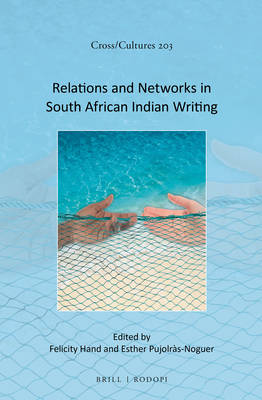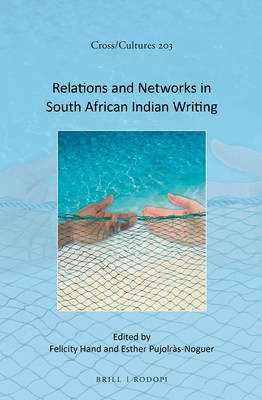
- Afhalen na 1 uur in een winkel met voorraad
- Gratis thuislevering in België vanaf € 30
- Ruim aanbod met 7 miljoen producten
- Afhalen na 1 uur in een winkel met voorraad
- Gratis thuislevering in België vanaf € 30
- Ruim aanbod met 7 miljoen producten
Relations and Networks in South African Indian Writing
€ 242,95
+ 485 punten
Omschrijving
Writers of Indian origin seldom appear in the South African literary landscape, although the participation of Indian South Africans in the anti-apartheid struggle was anything but insignificant. The collective experiences of violence and the plea for reconciliation that punctuate the rhythms of post-apartheid South Africa delineate a national script in which ethnic, class, and gender affiliations coalesce and patterns of connectedness between diverse communities are forged. Relations and Networks in South African Indian Writing brings the experience of South African Indians to the fore, demonstrating how their search for identity is an integral part of the national scene's project of connectedness. By exploring how 'Indianness' is articulated in the South African national script through the works of contemporary South African Indian writers, such as Aziz Hassim, Ahmed Essop, Farida Karodia, Achmat Dangor, Shamim Sarif, Ronnie Govender, Rubendra Govender, Neelan Govender, Tholsi Mudly, Ashwin Singh, and Imraan Coovadia, along with the prison memoirists Dr Goonam and Fatima Meer, the book offers a theoretical model of South-South subjectivities that is deeply rooted in the Indian Ocean world and its cosmopolitanisms. Relations and Networks demonstrates convincingly the permeability of identity that is the marker of the Indian Ocean space, a space defined by 'relations and networks' established within and beyond ethnic, class, and gender categories.
CONTRIBUTORS
Isabel Alonso-Breto, M.J. Daymond, Felicity Hand, Salvador Faura, Farhad Khoyratty, Esther Pujolràs-Noguer, J. Coplen Rose, Modhumita Roy, Lindy Stiebel, Juan Miguel Zarandona
CONTRIBUTORS
Isabel Alonso-Breto, M.J. Daymond, Felicity Hand, Salvador Faura, Farhad Khoyratty, Esther Pujolràs-Noguer, J. Coplen Rose, Modhumita Roy, Lindy Stiebel, Juan Miguel Zarandona
Specificaties
Betrokkenen
- Uitgeverij:
Inhoud
- Aantal bladzijden:
- 216
- Taal:
- Engels
- Reeks:
- Reeksnummer:
- nr. 203
Eigenschappen
- Productcode (EAN):
- 9789004364967
- Verschijningsdatum:
- 1/06/2018
- Uitvoering:
- Hardcover
- Formaat:
- Genaaid
- Afmetingen:
- 160 mm x 236 mm
- Gewicht:
- 458 g

Alleen bij Standaard Boekhandel
+ 485 punten op je klantenkaart van Standaard Boekhandel
Beoordelingen
We publiceren alleen reviews die voldoen aan de voorwaarden voor reviews. Bekijk onze voorwaarden voor reviews.









